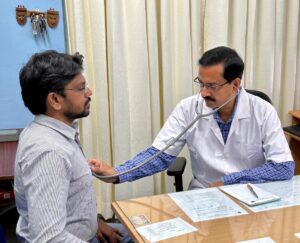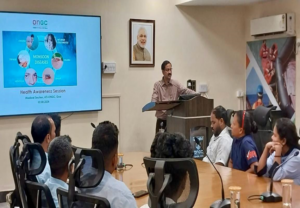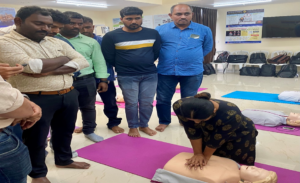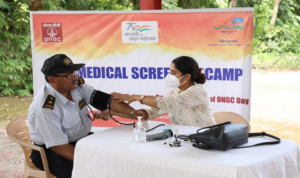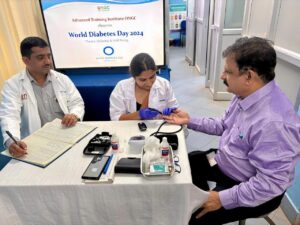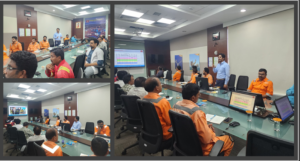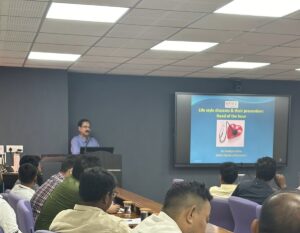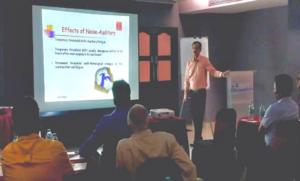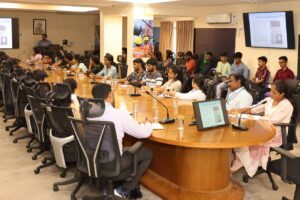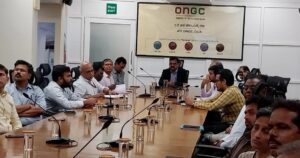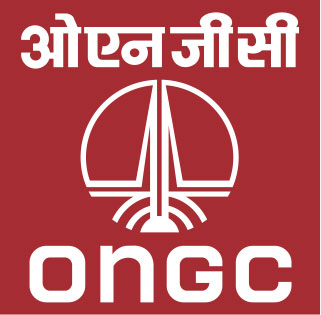Occupational Health Centre at ATI ONGC
- Posted by ATI ONGC
- Date December 10, 2024
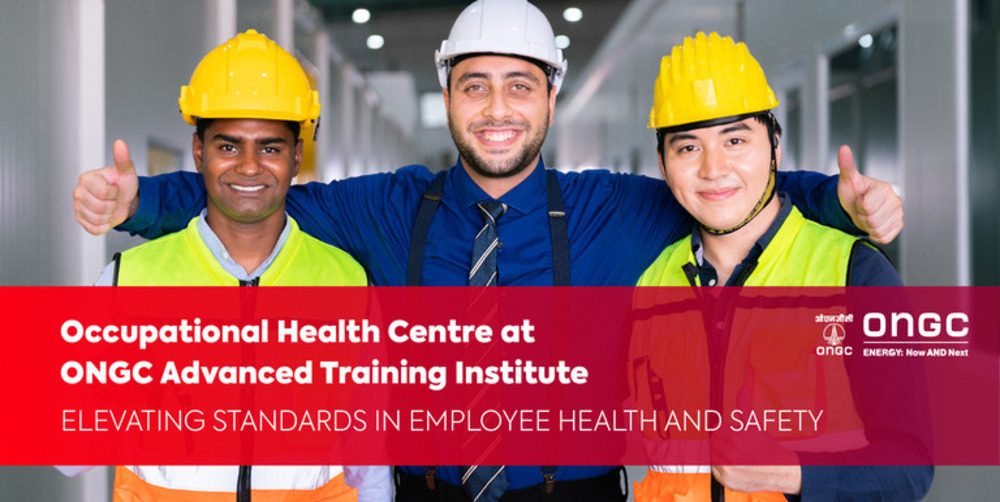
Occupational Health Centre at ONGC Advanced Training Institute: Elevating Standards in Employee Health and Safety
The Occupational Health Centre (OHC) at the Advanced Training Institute (ATI) of ONGC is a cornerstone of health and safety excellence. It not only addresses the medical needs of employees but also takes a proactive role in occupational health through therapeutic, preventive, and awareness-based activities. Here’s a closer look at how OHC operates to ensure employee well-being and workplace safety.
Therapeutic Activities: Comprehensive Care for All
OHC provides immediate and comprehensive medical support, ensuring the health and safety of ONGC employees. Key services include:
- Primary Emergency Medical Care: Quick response to emergencies with first aid facilities.
- Diagnostic Support: Nebulisation, ECG, and Random Blood Sugar tests.
- Outpatient Consultations: Regular OPD services for consultation and treatment.
- Specialist Referrals: Patients are referred to empanelled hospitals for multidisciplinary check-ups by medical experts.
- 24/7 Transport Facilities: A fully equipped ambulance is always available to ensure timely transportation of patients.
Preventive Health Activities: Focusing on Wellness
OHC emphasises preventive measures to safeguard employees and their families. Activities include:
- Health Check-ups: Pre-employment and periodic medical examinations to monitor health proactively.
- Jeevan Saathi PME: Health screenings for the spouses of employees.
- Senior Citizen Health Check-ups: Dedicated sessions for elder employees and dependents.
- Counselling Services: Continuous guidance and follow-ups to promote long-term health.
Occupational Health Services: Ensuring Workplace Safety
The OHC applies preventive medicine principles to identify and mitigate workplace hazards. Its robust services include:
- Training Programmes: Courses on occupational health management, work-life balance, and ergonomics.
- Awareness Sessions: Educating employees on occupational health and hygiene practices.
- First Aid Training: Hands-on CPR training for HSE and fire safety teams using mannequins.
- Hazard Monitoring: Regular monitoring and assessments of occupational hazards.
- Surveillance Studies: Comprehensive studies to assess and mitigate workplace risks.
- Hygiene Surveys: Monitoring and auditing canteens and other facilities to ensure high standards of cleanliness.
Health Awareness Activities: Empowering Employees
OHC conducts awareness sessions on key health topics, empowering employees to take charge of their well-being. Some focus areas include:
- Occupational health hazards and ergonomics.
- Lifestyle disorders and wellness strategies.
- Awareness campaigns during health observance days like World Diabetes Day and National Blood Donation Day.
Community Outreach through Medical Camps
The centre extends its services to the local community, organising medical camps for the secondary workforce and nearby villages. These camps provide:
- Free Consultations: Expert advice on common and occupational health concerns.
- Free Medicines: Distribution of essential medicines to underprivileged patients.
Recent Achievements: A Year in Review
In the last year, OHC has successfully conducted a wide range of impactful activities:
- Training Sessions:
- A three-day programme on occupational health management and work-life balance.
- Specialised training on ergonomics and health management.
- Awareness programmes for students, executives, and personnel from various organisations.
- Health Awareness Campaigns:
- Preventive tips on monsoon diseases for secondary workers.
- Discussions on the importance of blood donation.
- Themed sessions on “Diabetes and Well-being” for World Diabetes Day.
- First Aid and CPR Training:
- Basic emergency care training for employees of organisations like Total Energies, HPCL, and DRDO.
- Specialised sessions on triage and CPR techniques.
- Community Health Camps:
- Malaria screening camps for workers.
- Blood sugar and blood pressure monitoring during World Diabetes Day.
Ongoing Projects (2023–24): Driving Excellence in Occupational Health
Industrial Hygiene Survey (ONGC Kakinada):
This project focuses on identifying workplace hazards and ensuring a safe work environment through detailed assessments and recommendations.
Occupational Hazard Identification (Odalarevu Oil Terminal):
With a goal to reduce occupational diseases, this study identifies physical, chemical, and biological hazards, monitors noise levels, and offers actionable recommendations.
Objective:
- To proactively identify and address occupational risks.
- To improve workplace safety standards through evidence-based solutions.
Methodology:
- Conducting workplace surveys.
- Analysing Pre-Medical Examination (PME) data.
- Submitting comprehensive final reports.
Conclusion: A Commitment to Safety and Wellness
The Occupational Health Centre at ONGC ATI exemplifies a proactive approach to health and safety. By integrating therapeutic care, preventive measures, training, and awareness campaigns, OHC ensures that employees are supported holistically. Its initiatives extend beyond the workplace, benefiting local communities and setting a high benchmark in occupational health management.
With a strong focus on innovation, collaboration, and employee well-being, ONGC’s OHC is paving the way for a safer and healthier future.
